Five things to look out for at the Tour de France 2021 in week one
Punchy opening stages, Cav at the Tour, and a tough edition of La Course - don't miss these moments
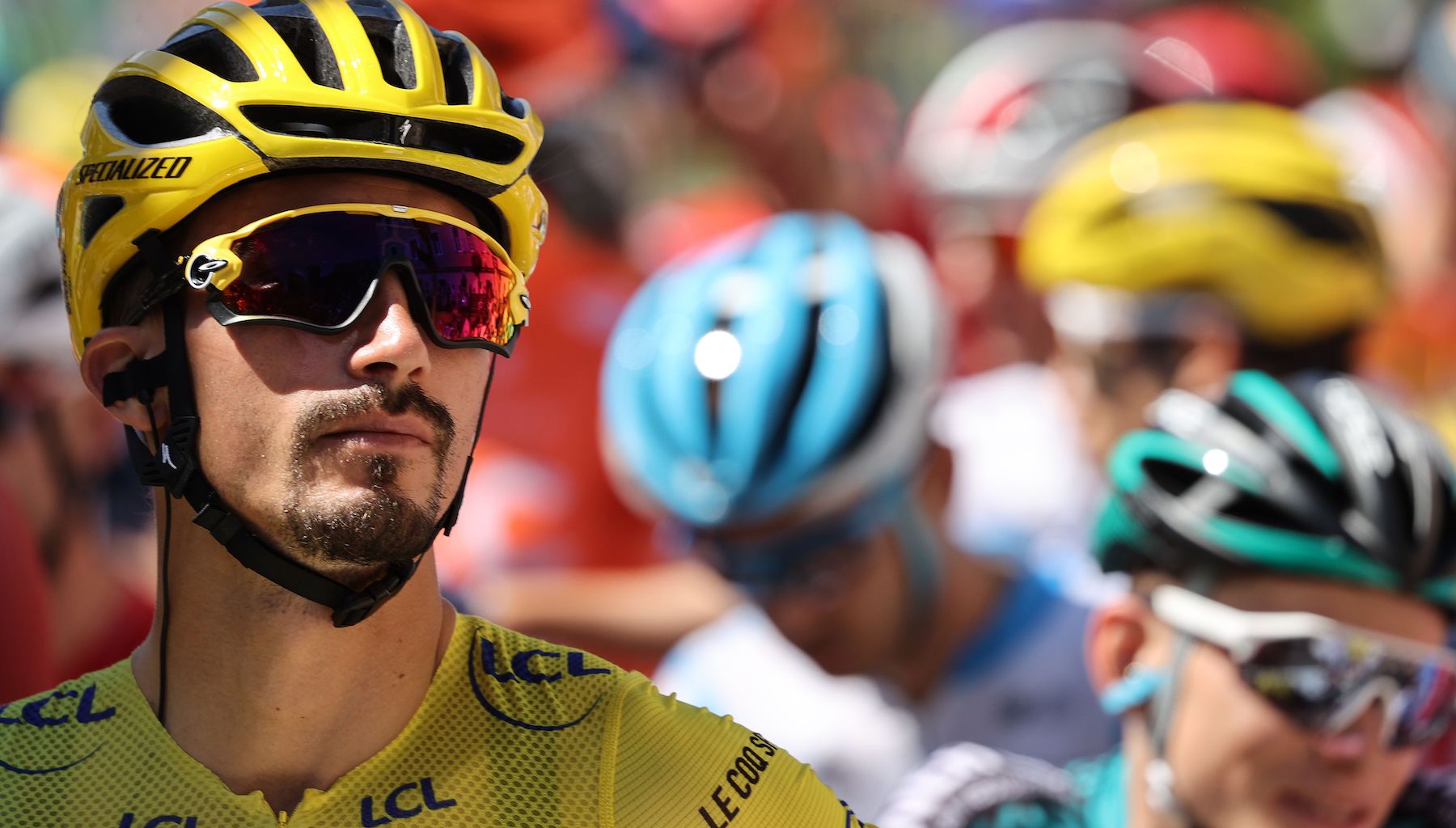
Opening Brittany stages give puncheurs a shot at yellow
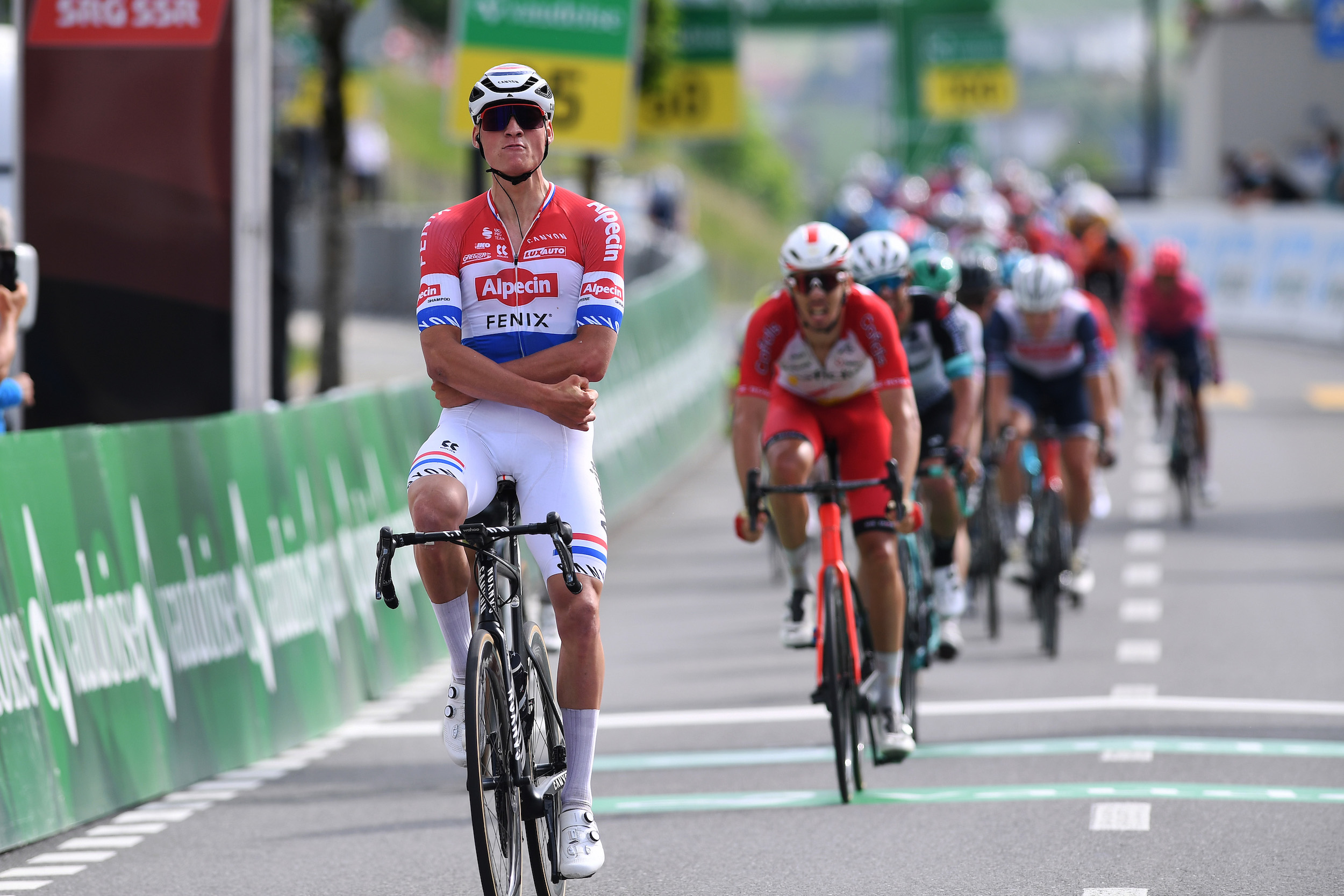
In contrast with the flat stages that opened each of the last three Tour de France, this year’s Grand Départ in Brittany features a couple of hilly, undulating stages that will see the puncheurs come to the fore. Both stage one on Saturday and stage two on Sunday include six small categorised climbs, plus several more uncategorised rises, and end with steep uphills on which the top puncheurs are likely to sprint it out for both stage victories and the chance to wear the yellow jersey.
You can’t help but feel these stages have been designed with Julian Alaphilippe in mind. He’s France’s No.1 star, and both he and the local fans will be desperate for him to take the yellow jersey on these stages — he has, after all, enjoyed something of a love affair with the jersey in recent Tours, having worn it for three days during the opening week of last year’s race, and having spent two-thirds of the 2019 Tour in it.
No rider in the world is quicker on uphill finishes that reach a high enough gradient than Alaphilippe, and indeed both Côté de la Fosse aux Loups on stage one and the climb at Mûr de Bretagne on stage two ramp up to over 10 per cent at points. But there are shallower sections, too, so much so that the climbs average 5.7 per cent and 6.9 per cent respectively, which will give the bigger, stronger riders a chance too — specifically, Wout van Aert (Jumbo-Visma) and Tour debutant Mathieu van der Poel (Alpecin-Fenix)
Alaphilippe, Van der Poel and Van Aert have provided us with some cycling’s most memorable moments over the past few years while racing against each other in the Classics, and these opening two stages will provide a perfect stage for them to reignite their three-man rivalry at the Tour de France for the first time. Watching them do battle could be one of the highlights of this year’s Tour.
The more resilient sprinters like Peter Sagan (Bora-Hansgrohe), Michael Matthews (BikeExchange) and the on-form Sonny Colbrelli (Bahrain-Victorious) will also fancy their chances in Brittany, as will punchy climbers like Michael Woods (Israel Start-Up Nation), Alejandro Valverde (Movistar) and Dan Martin (who won the last time the Tour visited Mûr de Bretagne in 2018), while even top GC favourites Tadej Pogačar (UAE Team Emirates) and Primož Roglič (Jumbo-Visma) may sense an early chance to gain some time.
A tough edition of La Course
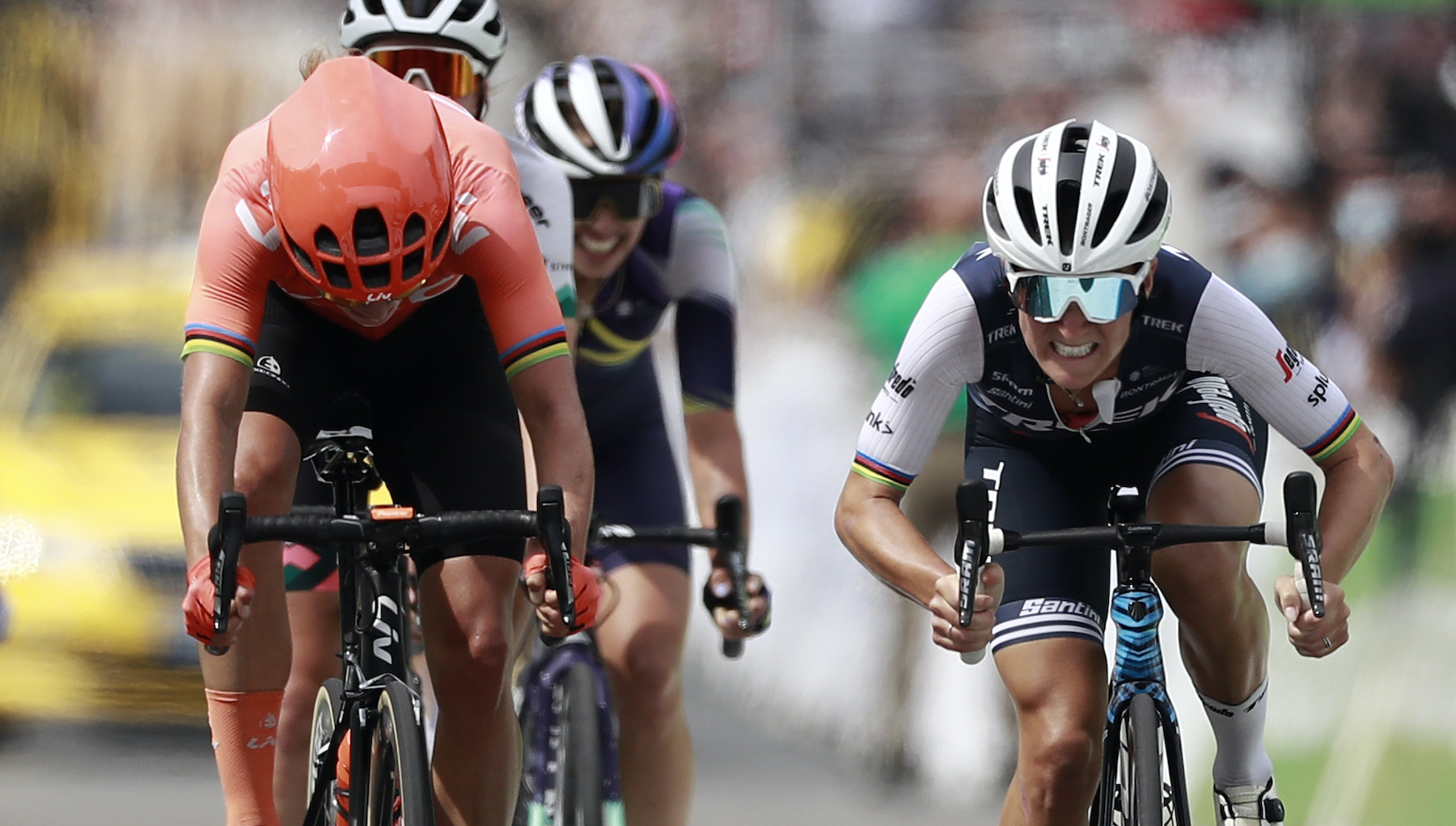
For all the hype surrounding the belated arrival of a women’s Tour de France next year, it shouldn’t be forgotten that the women will be racing in France for one day only for the eighth edition of La Course.
Christian Prudhomme has suggested that the imminent women’s Tour de France will be introduced in addition to La Course rather than in place of, which would be a welcome move given how exciting recent editions of the race have been.
The latest race content, interviews, features, reviews and expert buying guides, direct to your inbox!
This year’s race will take place on Saturday, June 26th, the same day as the first stage of the men’s race, and on many of the same roads in Brittany. The riders will tackle an undulating 107.4km route, ending with three laps of a 14km circuit, featuring the Côté de la Fosse aux Loupes climb.
It’s a tough route, in other words, and tough enough to make Anna van der Breggen (SD Worx) the favourite for the victory. The more selective a race is, the more difficult she is to stop, and given her record on uphill finishes (which includes seven successive victories at Flèche Wallonne), the fact the race will finish atop the Côté de la Fosse aux Loupes swings matters even more in her favour.
Although Annemiek van Vleuten (Movistar) sits this one out to focus exclusively on the Olympics, there will be two other former winners of La Course making an appearance: Marianne Vos (Jumbo-Visma) and defending champion Lizzie Deignan (Trek-Segafredo). Both would normally fancy themselves in a sprint finish against Van der Breggen, but the severity of the uphill finish this year may mean they’ll have to put in an earlier attack if they’re to win again this year.
Of the other confirmed starters, Kasia Niewiadoma (Canyon-SRAM) and Cecilie Uttrup Ludwig (FDJ) will both relish the difficulty of the parcours, while BikeExchange will be one of the teams to watch with both Grace Brown and Amanda Spratt riding for them.
Cav’s return to the Tour de France bunch sprints
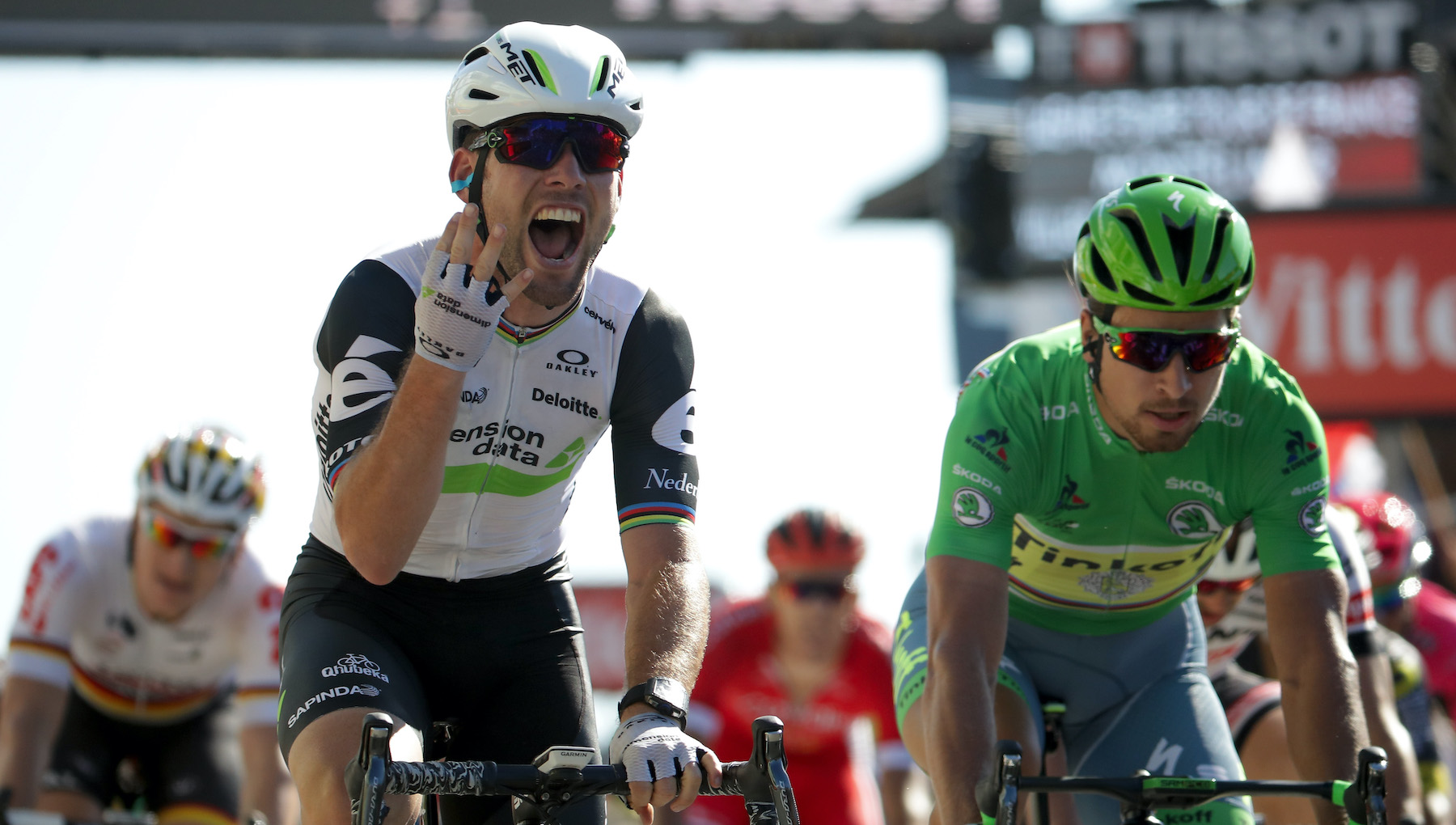
No rider will be more talked about, more scrutinised, more debated during this opening week than Mark Cavendish. Following the dramatic news of Sam Bennett’s withdrawal from Deceuninck - Quick-Step’s line-up, Cavendish has been recalled to appear in his first Tour de France in three years, continuing a sensational return to form for a rider who many had thought was done at the top level.
The stage is set for a fairytale return to the Tour peloton for a rider who is one of its greatest ever participants. The dream of winning a first Tour stage since 2016 will be a very tough ask, especially considering that he hasn’t actually raced at WorldTour level all season, but his form at the Baloise Belgium Tour was encouraging, and the opening week includes three opportunities for the sprinters (stages three, four and six) before he’ll have to drag himself over any mountains.
This being the Tour de France, the competition in the bunch sprints will of course be fierce. In the absence of Bennett, Caleb Ewan (Lotto-Soudal) is the outstanding candidate and will be difficult to stop if his Lotto-Soudal team can deliver him in the final.
Despite not having featured much in the WorldTour this season, Arnaud Dèmare (Groupama-FDJ) has quietly enjoyed a steady stream of victories in smaller races throughout the season and could be Ewan’s biggest rival if he re-finds the form that saw him win four sprints at the Giro d’Italia last year.
Alpecin-Fenix has the intriguing duo of Tim Merlier and Jasper Philipsen to choose between in their sprint train, while Cees Bol (DSM) and Mads Pedersen (Trek-Segafredo) — both of whom are eleven years Cavendish’s junior — have both matured into sprinters capable of winning sprints at the highest level.
A crucial early time trial
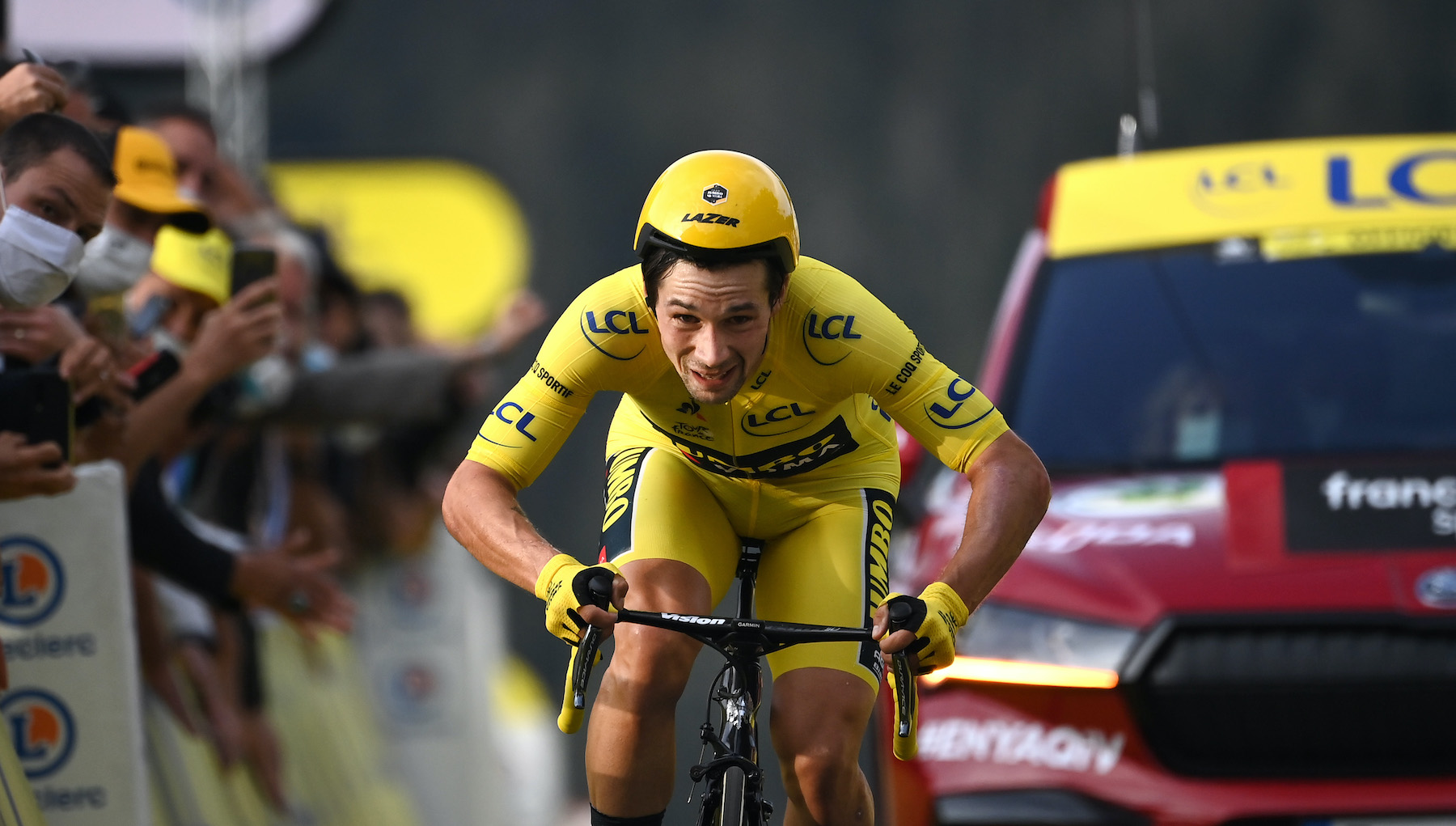
One of the most important GC stages of this year’s race comes as early as the fifth day, when the overall favourites will do battle in Mayenne for the first individual time trial of the race.
At 27.2km, it’s long enough to cause serious ruptures on the GC, especially given the time trialing calibre of some of the top favourites. Primož Roglič (Jumbo-Visma) in particular has tended to lay the foundations of his many stage race victories with dominant time trial displays, and could be looking at gains of minutes over some of his rivals. And given the route’s flat profile, this might also be his best chance to put time into his biggest rival, defending champion Tadej Pogačar (UAE Team Emirates).
For Ineos Grenadiers, this stage will be significant for internal politics. The team has not committed to publicly backing one of Geraint Thomas and Richard Carapaz as outright leader, but this stage will give a chance for Thomas to capitalise on his superior abilities against the clock and establish himself as the team’s No.1 man. A superior ride by the on-form Richie Porte might even bring him into the reckoning as a potential leader.
Look out for GC riders who are strong against the clock like Wilco Kelderman (Bora-Hansgrohe) and Rigoberto Urán (EF Education-Nippo) to lay the foundations for a podium challenge with a strong ride, while the likes of Miguel Angel Lopez (Movistar), David Gaudu (Groupama-FDJ), Michael Woods (Israel-StartUp Nation) and Nairo Quintana (Arkéa-Samsic) will be desperately hoping to limit their losses.
There’s a stage win up for grabs, too, which specialists like Stefan Bissegger (EF Education-Nippo), Stefan Küng (Groupama-FDJ) will be targeting, while all-rounder par excellence Wout van Aert should be in contention too.
GC skirmishes in the Alps
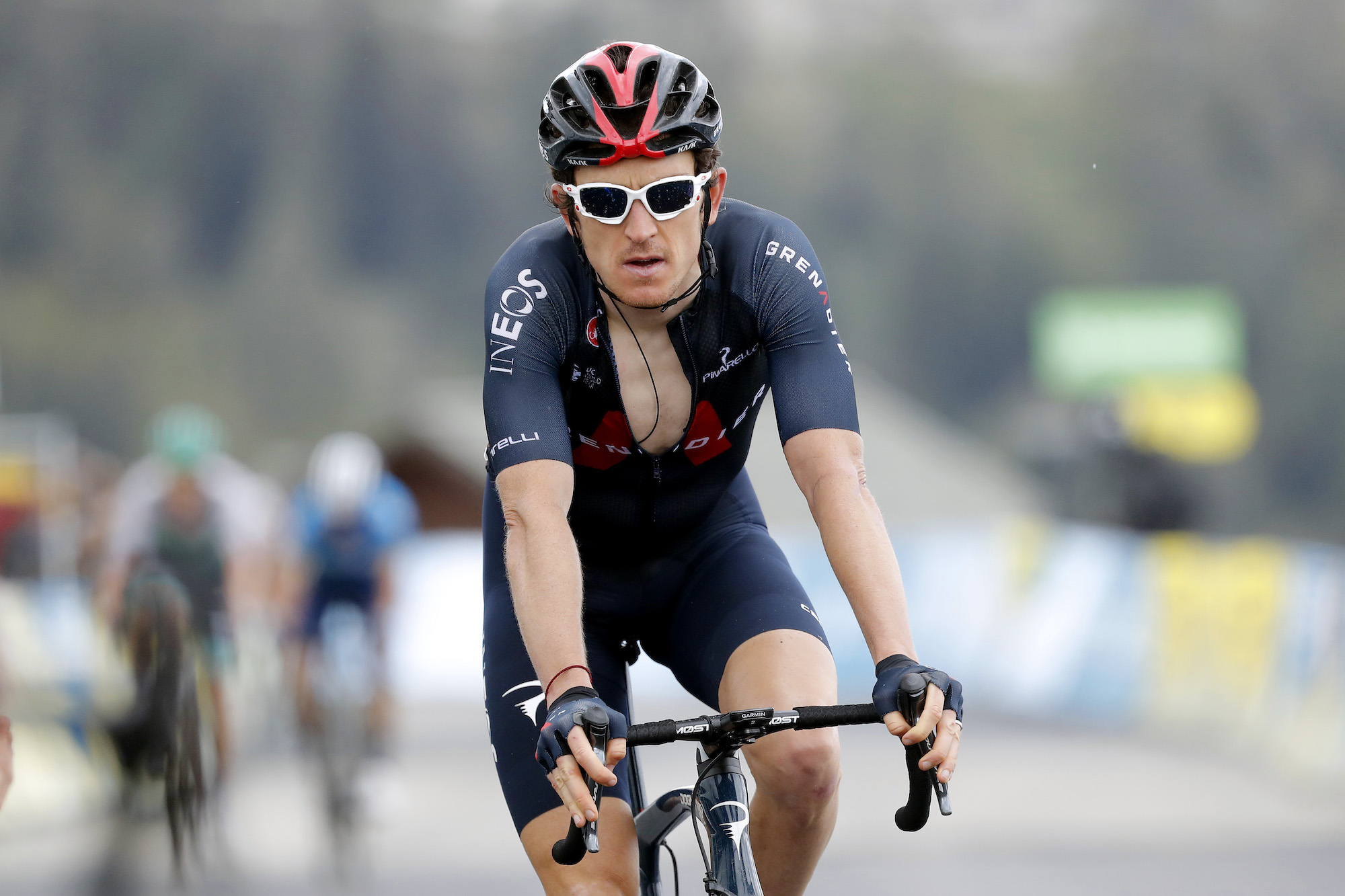
After having spanned the breadth of the nation travelling west to east, the opening week will end with back-to-back Alpine stages that are sure to ignite the race for the yellow jersey.
Stage eight may end with a 15km descent to the finish in Le Grand Bornand, but the three successive category one climbs that preceded it should ensure a significant GC sort out. The same finale (which features the Col de Romme and Col de la Colombiere before the descent to Le Grand-Bornand) was also used at the 2018 Tour, on which occasion the peloton was reduced to just sixteen riders by the finish. Expect similar selections this year.
Stage nine is more difficult still, featuring both the first Hors category climb of the race (Col du Pré) and the first mountain top finish, atop the category one Montée de Tignes. The latter is a long, arduous climb that lasts over 20km, and has fluctuating gradients that make it tougher than the 5.6 per cent average suggests. It’s not the hardest finishing climb the riders will take-on this year, but it should host some proper racing with attacks and gaps between the favourites.
The big thing to look out for on these stages won’t necessarily be how the main GC contenders perform, but rather how their domestiques do. Jumbo-Visma were the best in the mountains during last year’s race, and, even in the absence of Tom Dumoulin, could be even better this year with Steven Kruijswijk and Jonas Vingegaard coming in. They’ll want to assert their authority on these two stages and send an intimidating message to anyone hoping to attack Primož Roglič.
Ineos Grenadiers will surely be much improved after last year’s disappointing Tour, but one thing that’s less certain is what their strategy will be. For once, they aren’t riding with the top GC favourite in their team, and therefore the customary mountain train doesn’t appear to be the best strategy. Instead, look out for them to implement a tactic they’ve used throughout the season and attack with their multiple leaders, and force other teams to chase.
And finally there’s UAE Team Emirates, of whom big questions remain concerning whether they are good enough to defend Pogačar’s title. As defending champion Pogcačar will not be able to go under the radar as he did last year, meaning teammates like Davide Formolo, Rafał Majka and Brandon McNulty will have to stick with him over these high Alpine passes. It promises to make for fascinating viewing.
Stephen Puddicombe is a freelance journalist for Cycling Weekly, who regularly contributes to our World Tour racing coverage with race reports, news stories, interviews and features. Outside of cycling, he also enjoys writing about film and TV - but you won't find much of that content embedded into his CW articles.